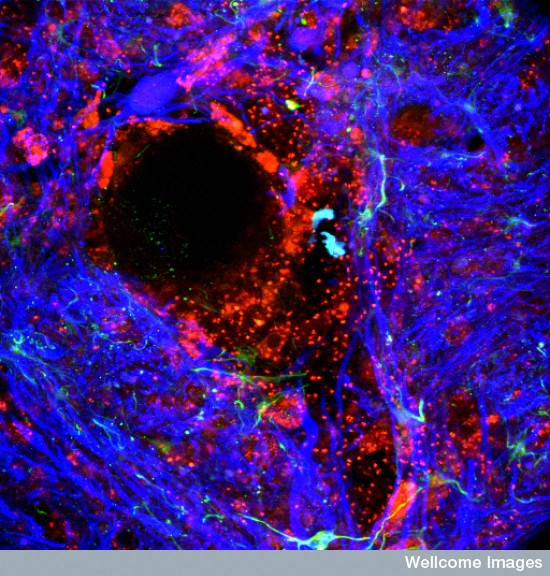A breath test for Parkinson's
Interview with
More than seven million people worldwide are living with Parkinson's Disease. But one in ten of those people might actually have a disorder that resembles Parkinson's, but is in fact a slightly different disease that might need treating in a different way. Now scientists in Cambridge and Israel are working on a breath test which can make diagnosis of the disease more accurate. Simon Stott spoke to Chris Smith...
But one in ten of those people might actually have a disorder that resembles Parkinson's, but is in fact a slightly different disease that might need treating in a different way. Now scientists in Cambridge and Israel are working on a breath test which can make diagnosis of the disease more accurate. Simon Stott spoke to Chris Smith...
Simon - Parkinson's disease is a neurodegenerative condition. That means that you're losing cells in the brain. One of the issues with the disease is diagnoses. The only definitive diagnosis comes at the post-mortem stage. When we look at the brains of individuals at that stage, 10% to 15% get rediagnosed with something else. That's quite a sizeable part of the affected population.
Chris - Is that a problem for those people because their treatment might not be optimal?
Simon - Exactly.
Chris - Given that the post-mortem stage is probably a bit late for the majority of cases, you would like to bring that diagnostic forward?
Simon - Exactly and the way we want to do that is look for biomarkers. These are chemicals that the body is producing that we can use to differentiate between two populations of people. We are looking at blood, we are looking at urine samples, we're looking at cerebrospinal fluid. These are all very invasive approaches though. So, using a breath test is much more simplified.
Chris - For real, you're able to literally take a sample of breath and this would tell you what's going on in someone's brain?
Simon - So, this is a question that often pops up. How is it there's something in the brain could be coming out of your breath? Two of the main pathways for excretion of waste or unnecessary material on the body, the respiratory system and the gastrointestinal system, both of them are connected with the mouth and what we breath out will include everything from coffee and what you had for breakfast, to other metabolic processes going on in the body. We have about 1500 people with Parkinson's disease on our books; we have clinical data for most of these people going back 15 to 18 years. And we're going to take all the clinical data, lining it up alongside the chemicals that are coming out of the breath test and see if we can start to put people into subpopulations with the condition.
Chris - You take the person, their diagnosis, and their breath chemicals, looking for chemicals that keep behaving like a repeat offender. This person with this diagnosis has this level of this, more often than someone who doesn't have that diagnosis. So, you see that pattern and then you can say, right, on the basis of just now sampling a person at random from the population, if they've got that particular chemical composition in their breath, they may well be developing or actually have Parkinson's.
Simon - Exactly. We also hope to use this technology to track the disease over time. So, some of the chemicals that might be present in very early stage Parkinson's might change towards later stages. There's a lot of exciting potential for this work.
Chris - How likely do you think it'll be that you'll get a breath test for Parkinson's?
Simon - A lot of the preliminary data coming from our collaborators in Israel, they've done animal pilot studies where they can differentiate between different models of Parkinson's disease. And now, they have the clinical data, which has just been published this month where they can differentiate between people with Parkinson's disease and people without. So, we are reasonably confident.
- Previous Is your phone leaking personal data?
- Next FameLab: DNA Sequencing










Comments
Add a comment